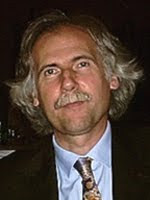
How can a cinema advert by Pfizer, the makers of Viagra, not mention the drug they make? By saying the
real danger is counterfeit medicines. The
European Alliance for Access to Safe Medicines, which has three out of seven Board Executives who are pharmaceutical representatives, has called the internet the
Counterfeiting Superhighway.
And believe it or not, Pfizer has got
support from the Medicines and Healthcare products Regulatory Agency (MHRA). But why should the Pfizer campaign focus on the UK which does not allow direct to consumer advertising (except through such campaigns?)?
Pfizer have produced a report
Cracking Counterfeit which even pretends they are focusing on men because they're far less likely than women to visit or even be registered with a GP. Actually, as the company information says, Viagra is intended for use
only by men. The senior chemist at Pfizer Counterfeit Lab is quoted as saying that rat poison has been found in a counterfeit blood pressure lowering treatment, but doesn't say which drug and doesn't say it's Viagra. By the way, Viagra does reduce blood pressure.
The MRHA makes reference to a brochure
Counterfeit drugs kill produced by
IMPACT. WHO says it has responded to the challenge of counterfeit medical products by creating a global coalition of stakeholders called IMPACT (International Medical Products Anti-Counterfeiting Taskforce), a partnership comprised of all the major anti-counterfeiting players, including: international organizations, non-governmental organizations, enforcement agencies, pharmaceutical manufacturers associations and drug and regulatory authorities. Why do they need pharmaceutical manufacturers organisations? Do they want them to run for them?
The IMPACT brochure says fake medicines led to a trail of death in Argentina in 2004. A woman was given 7 out of a course of 10 of what the Argentinian medicines authority called "highly toxic counterfeit injections" of an iron-based compound for anaemia, before she died of liver failure. Four people were prosecuted. A second woman injected with the same counterfeit drug gave birth to a 26 week premature baby. No other examples are given of counterfeit drugs causing a "trail of death".
The IMPACT report does point out that some internet pharmacies are completely legal operations. Pfizer uses the IMPACT brochure to say that substandard and counterfeit medicines can lead to death, as well as therapeutic failure and drug resistance.
Survey data found that 67% of men purchasing prescription erectile dysfunction medicine without prescription use the internet. Pfizer helpfully tell you that the legitimate sites that sell precriptions can be found listed at the Royal Pharmaceutical Society of Great Britain (RPSGB)
www.rpsgb.org. They presumably get their cut from this site but not from the illegal ones.
Pfizer estimate that over £10 million pounds is potentially being poured into the counterfeit market in the UK. They quote the
Centre for Medicine in the Public Interest as predicting that counterfeit medicine sales will reach approx 55.5 billion euros globally by 2010. The Wikipedia
entry on this centre says it is "a non-profit medical issues research group which is partially funded by the pharmaceutical industry". Where's the public interest?
The suggestion is that men buy Viagra on the internet because it's cheaper and less embarassing. And they think it is like an over-the-counter drug. Could Pfizer make Viagra more cheaply? Is it too dangerous (watch out for the lowering of blood pressure and Pfizer give warning for cardiac risk of sexual activity in patients with preexisting cardiovascular disease) to be over-the-counter? Does it work?
By the way Pfizer is the world's largest pharmaceutical company. Who are the counterfeiters? Are the regulators doing their job?
And finally, Pfizer have even got
Dr Mark Porter supporting them in the campaign. Is there a conflict of interest with his BBC job, presenting Case Notes on radio 4 amongst other activities?

 Robert Whitaker in his latest posting on his Mad in America blog (to which I have referred before) elaborates on the work of Giovanna Fava about the vulnerability to relapse created by taking antidepressants. Fava has produced a recent review in which he builds on his hypothesis that the neurobiological mechanism underlying the increased vulnerability is due to oppositional tolerance. By this he means that the effects of the drug are opposed or counteracted by homeostatic changes in the brain, and when drug treatment ends, these processes may operate unopposed.
Robert Whitaker in his latest posting on his Mad in America blog (to which I have referred before) elaborates on the work of Giovanna Fava about the vulnerability to relapse created by taking antidepressants. Fava has produced a recent review in which he builds on his hypothesis that the neurobiological mechanism underlying the increased vulnerability is due to oppositional tolerance. By this he means that the effects of the drug are opposed or counteracted by homeostatic changes in the brain, and when drug treatment ends, these processes may operate unopposed.
















































